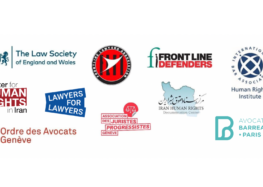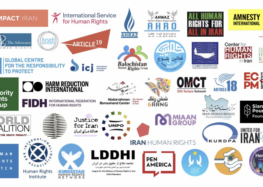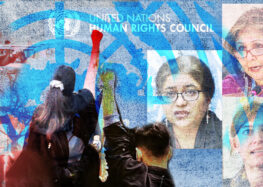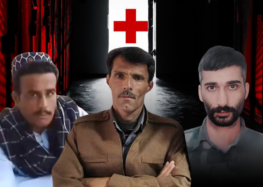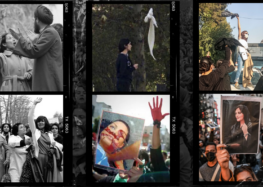Four Years Later, Still No Justice for Neda’s Murder

“I just hope that one day everyone will be free, and God willing, Neda will also have achieved her goal,” Hajar Rostami Motlagh, the mother of the late Neda Agha Soltan (pictured) told the International Campaign for Human Rights in Iran.
On the fourth anniversary of the death of Neda Agha Soltan in the aftermath of the 2009 presidential elections, her mother told the International Campaign for Human Rights in Iran, “There was supposed to be a court trial held, but in the past four years there hasn’t been a trial. The case file is still open. I don’t know what else to say. I just hope one day they will show me her murderer and tell me, ‘This is the murderer of your child.’”
Describing her expectations for justice, Hajar Rostami Motlagh, Neda Agha Soltan’s mother said, “I expected a court trial to be held for my daughter’s murder, and it hasn’t happened. I don’t know if I will ever hear an answer in my lifetime!”
Neda’s mother expressed her wishes for the future, saying, “I don’t know what to say. I just hope that one day everyone will be free, and God willing, Neda will also have achieved her goal. I can’t say anything else. Answering these questions is hard for me,” Hajar Rostami Motlagh said.
Asked whether they were able to easily hold Neda’s anniversary memorial this year, Hajar Rostami said, “Yes, thank God. It was very safe and easy. People attended also. We were going back home and there was yet another group of Neda’s fans coming to her grave site.”
Neda Agha Soltan, born on January 23, 1983, was fatally shot during a protest against the results of the 2009 presidential election on Saturday, June 20, 2009, in Tehran’s Amirabad neighborhood at the intersection of Khosravi and Salehi Streets. So far, it is not clear who shot and killed her, and no one has taken responsibility for her death. During the months following her death, the state radio and television and some Iranian authorities offered different versions of her death on several occasions. Over the past four years, the police and security forces have restricted or shown violence to those who visit her gravesite to conduct observance ceremonies for her.
In August 2011, just before the UN Special Rapporteur on human rights in Iran presented his first report to the UN, the International Campaign for Human Rights in Iran conducted an interview with Hajar Rostami. “Two years, three months, and two days after my daughter’s death, all I want is to first ask Mr. Ahmadinejad why we should have such lack of security in our country for some to come, kill, and go, without any particular consequences. When, speaking with one of the most reputable media outlets in the world, Mr. Ahmadinejad says that Neda was murdered by BBC operatives, he must have documents and evidence for his statements. Therefore I want him to introduce those behind my daughter’s death,” said Hajar Rostami, pointing out her daughter’s futile murder investigation.

